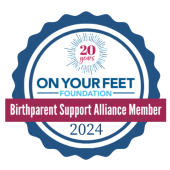
For many families hoping to adopt, figuring out how to handle the expenses can feel overwhelming. Naturally, this raises an important question: how does the adoption tax credit work? Getting a clear answer can make a significant difference in a family’s financial outlook during the adoption process.
Adoption expenses can vary widely depending on things like the type of adoption and location, and while the emotional rewards of adoption are priceless, the financial side is equally important to understand. Thankfully, the adoption credit exists to help ease some of these costs, offering families valuable support along the way.
How Does the Adoption Tax Credit Work? What You Need to Know
The adoption credit is a tax benefit aimed at assisting adoptive parents with some of the expenses involved in the adoption process. This credit can cover a variety of eligible costs, including adoption fees, attorney fees, court costs, and even certain travel expenses. For the 2024 tax year, taxpayers can receive a credit for all qualifying adoption expenses up to $16,810. Many families find that this credit can significantly alleviate their financial burden, making the adoption process more accessible.
The adoption credit is available to adoptive parents who meet certain criteria. Understanding these requirements is essential for families seeking to benefit from this financial resource. We’ll examine what constitutes eligible expenses and how families can claim the credit.
Who Qualifies for Adoption Credit?
- Type of Adoption: The credit is typically available for domestic adoptions, international adoptions, and special needs adoptions. However, the specific rules may vary based on the adoption type.
- Income Limits: Families must meet certain income limits to qualify for the full credit. The amount of the credit may phase out for families with higher incomes, so it’s crucial to understand where you stand in this regard.
- Filing Taxes: To claim the adoption credit, families must file federal taxes. This requirement may seem straightforward, but some families may not realize they need to itemize deductions or complete specific tax forms.
Eligible Expenses for Adoption Credit
- Adoption Fees: These are the costs paid to the agency or attorney who handles the adoption process. This may include application fees, placement fees, and any additional costs associated with the agency’s services.
- Court Costs: Fees associated with the legal proceedings required to finalize an adoption, including filing fees and attorney fees, are typically eligible.
- Travel Expenses: For families pursuing interstate or international adoption, travel expenses can add up quickly. Costs for airfare, lodging, and meals during the adoption process may be considered eligible.
- Other Costs: Direct expenses for the main purpose of adopting a legally eligible child.
How to Claim Adoption Credit
- Gather Documentation: Families should collect all relevant documents, including invoices, receipts, and any legal documentation related to the adoption.
- Complete the Required Forms: The primary form used for claiming the adoption credit is IRS Form 8839, Qualified Adoption Expenses. Families will need to provide details about the adoption and the expenses incurred.
- Consult with a Tax Professional: Because the adoption credit is a unique tax situation, consulting a tax professional can be extremely beneficial and is highly recommended. They can provide guidance and ensure that you are getting the most out of credits that apply to you.
- Review Eligibility Requirements: Before filing, it’s essential for families to review the eligibility requirements for the adoption credit to ensure they qualify. This includes understanding income limits and qualifying expenses.
- File Before the Deadline: Families need to be aware of the tax filing deadlines to ensure they submit their claims on time. Filing early can also allow families to address any potential issues before the deadline.
- Monitor the Status of Your Claim: After submitting the claim, families should keep track of its status. This may involve checking with the IRS or confirming with their tax professional.
Financial Planning for Adoption
- Create a Budget: Establishing a clear budget for adoption-related expenses will help families track costs and avoid financial surprises. Consider all possible expenses, including those that may not be immediately obvious.
- Research Additional Financial Aid: In addition to the adoption credit, there may be grants and scholarships available for families pursuing adoption. Organizations that focus on adoption may offer financial assistance.
- Save in Advance: If possible, setting aside funds for the adoption can provide peace of mind. This proactive approach allows families to address expenses as they arise without added stress.
Preparing for the Tax Filing Process
- Keep Records Organized: Maintaining a well-organized file of all documents related to the adoption will simplify the process when it’s time to file taxes. This includes receipts, invoices, and any correspondence with agencies or legal representatives.
- Consult a Tax Professional: If families have questions or concerns about the tax filing process, consulting with a tax professional can provide clarity and reassurance. They can guide families through the steps needed to claim the adoption credit successfully.
- Understand Income Limits: The adoption credit may be phased out for higher-income families. Understanding these income thresholds in advance can help families anticipate their credit eligibility.
- Learn About State-Specific Benefits: Some states offer additional adoption-related benefits or credits. Researching these can reveal further savings opportunities that may complement the federal adoption credit.
- Monitor Legislative Updates: Tax laws can change, and staying informed on any new regulations or updates to the adoption credit will ensure families are taking full advantage of current benefits.
- Review Your Filing Status: For families with more complex financial situations or changes in filing status, it’s wise to review filing options with a professional to maximize the benefits related to adoption.
- Prepare for Possible IRS Follow-Up: Adoption credits can sometimes lead to additional IRS review. Be ready with your documents and organized files in case additional information is requested.
How Does the Adoption Tax Credit Work and What It Means for You
Addressing the question: “How does the adoption tax credit work” can significantly impact the financial aspect of the adoption process. By knowing what expenses are eligible, when to claim the credit, and how to manage the intricacies of the tax system, families can better position themselves for success. With the right planning and resources, the dream of adopting a child can become a reality without overwhelming financial stress.
If you’re interested in learning more about the adoption process or need assistance navigating your financial options, we invite you to visit our website at Adoption Center for Family Building or contact us at Center for Family Contact. We’re here to support you every step of the way.



